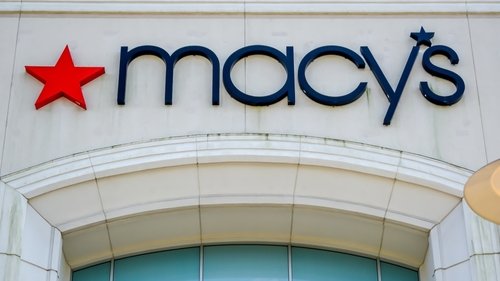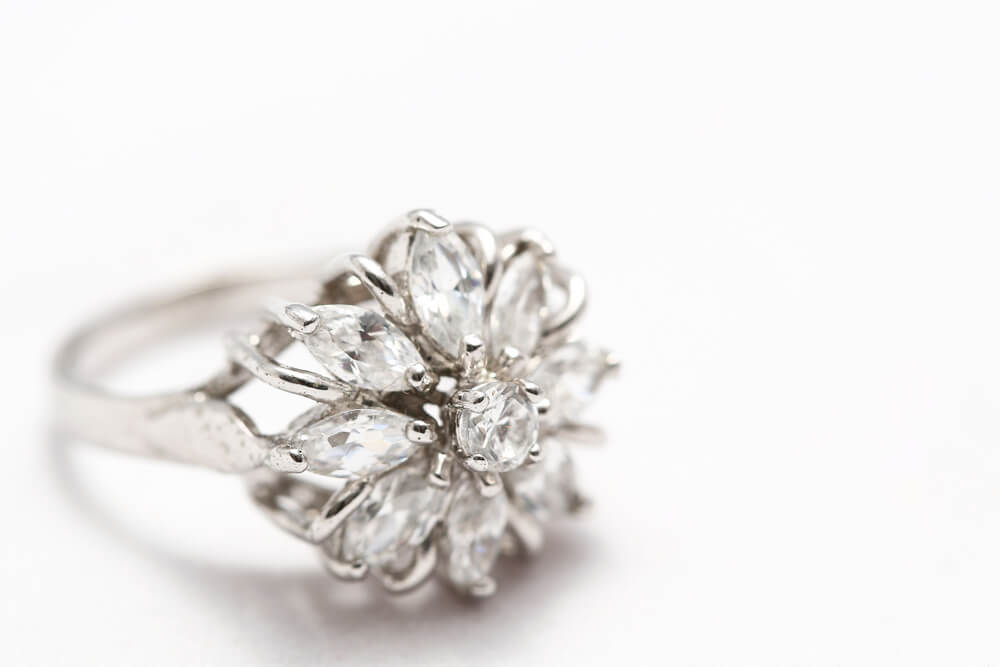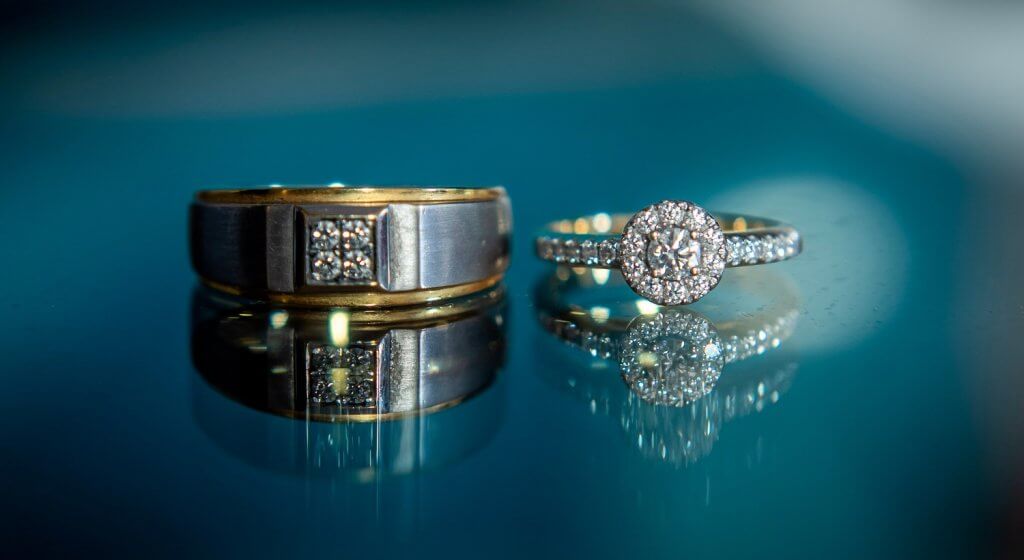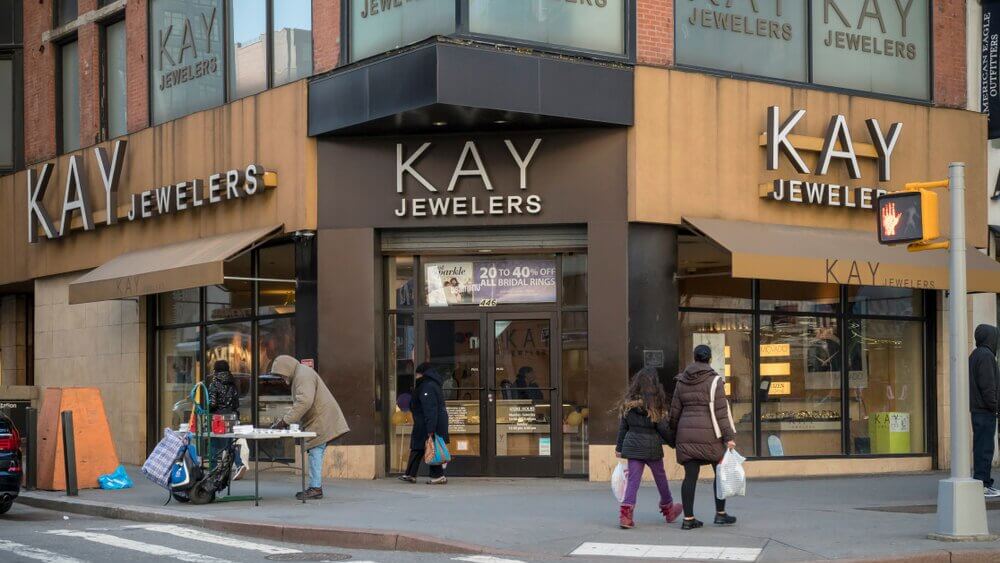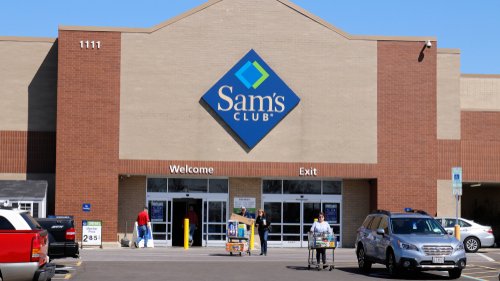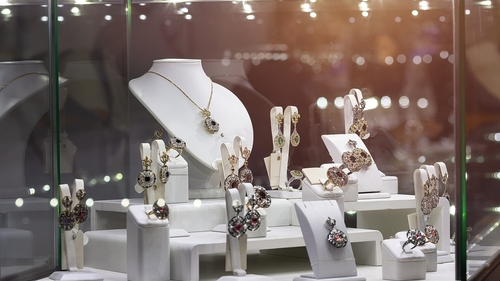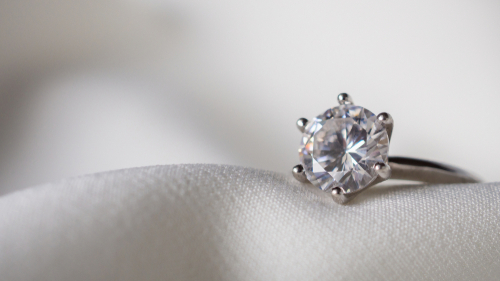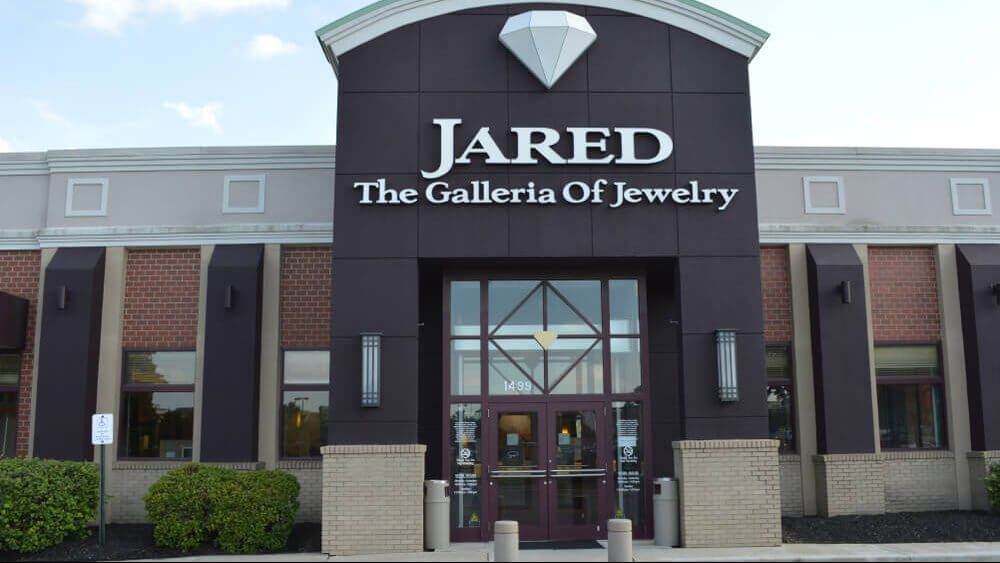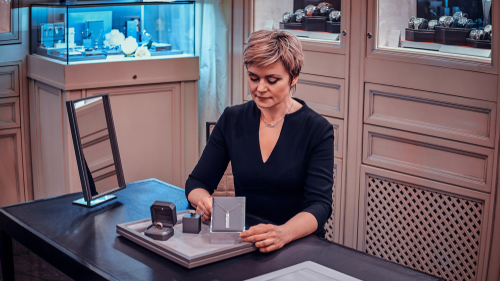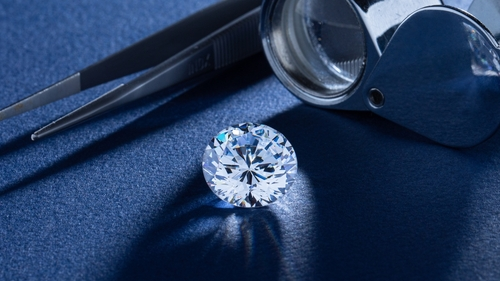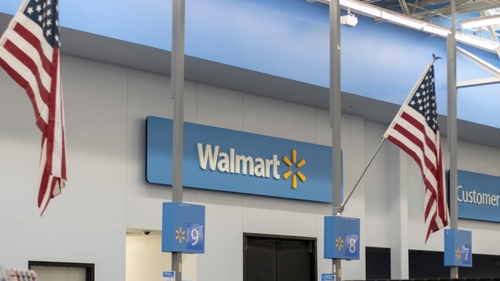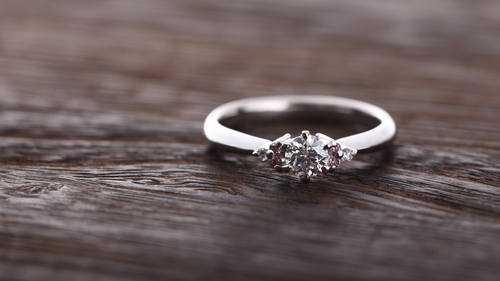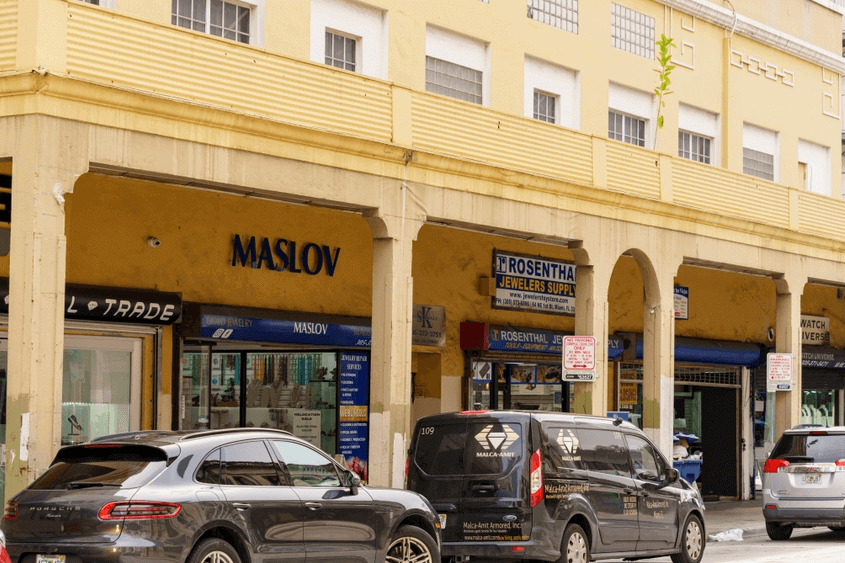Costco’s Engagement Rings: Surprising Value or Risky Buy?
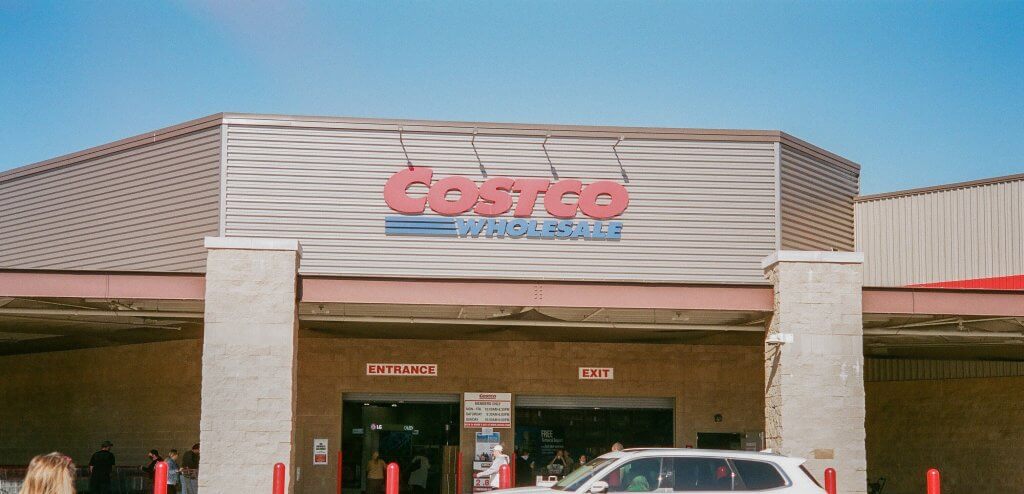
In this comprehensive review, we’ll explore:
- Whether you’re blown away or (somehow) predicted it before you even opened this review, we don’t think Costco is the worst place you could buy an engagement ring from.
- True, it’s definitely not the best, but the diamond selection isn’t half bad, and neither is the ability to see them in person before you drop a single dime on your ring.
- Ultimately, it comes down to what you’re comfortable with. You’ll get better service, more options, and a more intimate experience at a traditional jeweler, but that’s not to say that Costco is totally without its merits.
- Put it this way: if we had to choose between an online vendor and Costco, we’d go for Costco every time.
It’s hard to imagine walking out of Costco empty handed. For starters, the sheer variety of products one of their warehouses has on offer on any given day means that, barring the most exacting tastes in the world, you probably want or need something they’ve got on the shopfloor right now. But, more so than that, Costco is a great place to shop simply because of how easy it is for shoppers to nab an excellent deal.
Then again, for at least a handful of our readers, we may be understating it. It’s a known fact these days that Costco has garnered plenty of devotees not just in the US, and that this isn’t just your average destination for the money-wise shopper. And, while we’re not about to frame a picture of Costco and hang it on our living room wall, even we have to admit that there’s a rush to be found in buying in bulk, in refueling like a marathon runner in the food court, and in getting everything you could possibly need under a single roof.
Then again, ‘everything you could possibly need’ is a phrase that is open to interpretation, and there’s at least one thing we can think of that might be better bought elsewhere…
Our thoughts:
The positives: plenty of choices for different price ranges, and their minimum standards for diamonds put them ahead of their main competitor, but…
The negatives: not all of their diamonds are graded by the GIA, and some have only been graded in-house, meaning that there’s a lack of consistency between the stones they offer.
The Brand
Costco made waves as the first retail warehouse club, which used a disused airplane hangar to house a massive array of products, bought and sold in bulk to club members. Unlike other big name stores, Costco keeps overheads incredibly low – something that gives Costco locations that distinctively down-to-earth, warehouse vibe. These low running costs and high volume sales are what makes it possible for Costco to sell their products so close to wholesale prices. For most stores, margins need to be significantly higher.
Their product offering extends from known brands to Costco’s own brand, Kirkland Signature, and generally meets the standard that shoppers want, despite the fact that the prices are a lot lower than they are elsewhere.
And, as we’ve already alluded to, in between shelves stacked with sacks of Turkey Jerky and crates of sparkling water, Costco has a pretty sizeable selection of engagement rings and bridal jewelry. In some ways, this display is at-odds with the rest of the store – after all, it’s not like Costco are catering to a make-believe market of shoppers looking to buy their engagement rings in bulk – but, even so, it makes sense in a true-to-Costco kind of way.
One thing to make clear from the start: when it came to diamonds, Costco was (and, in some ways, remains) in a league of its own compared to its big competitors. If you’ve read our review of Sam’s Club already, then you’ll probably be expecting a pretty bleak review of Costco too but, in reality, there’s a lot more to this store’s offerings than you might expect.
Unfortunately, Costco is still missing some components we consider very important to picking a good ring. For the time being, our review is still a little lukewarm.
The Experience
But, if you were wondering whether you’d get the red carpet, five-star experience in Costco’s jewelry section, you might as well turn away now. For a more personalized shopping experience, you might want to consider engagement ring shops near you where expert guidance is readily available.
So, it’s not a criticism of Costco, but it’s still not something we’d recommend over and above the traditional experience to shoppers. Why? Because one of the most important parts of the ‘traditional’ experience is being able to hear and use your jewelers’ expert input. There’s a lot to understand about any diamond you encounter, and you need a jeweler to walk you through it. Costco’s employees are not trained jewelers, and what they can do to help you is predominantly limited to opening up the cases on your behalf.
Hypothetically speaking, however, what kind of experience can you expect if you’ve done your research, armed yourself with knowledge, and know exactly what you want – and exactly what you’re willing to pay for it?
It’s Costco. You’ll be standing at a jewelry case surrounded by shoppers pushing carts stacked high with Froot Loops, canned fruit, condiments, and potato chips, waiting on a Costco employee to unlock the case, and let you see the rings up close. If you’re a big fan of the store, you can probably find a way to romanticize it, but it might take some effort even then.
Barring that, Costco have a pretty great selection. True, the exact size of the selection varies from store to store but, from what we’ve seen, there’s a lot more intrigue in Costco’s selection than, say, Walmart’s…
The Rings
One of the things we took issue with at Walmart was their dependence on cluster rings. While they can look pretty, they’re also a pretty easy way of impressing shoppers with sparkle and ‘bling’ without the need for an expensive center stone, or good grades for cut, clarity or color. It was refreshing to see that, within Costco’s selection, there were plenty of engagement rings featuring high quality center stones, and halos that did not swamp or overwhelm the main diamond.
Still, Costco’s selection is intended to appeal to as wide a demographic as possible. The largest diamond we saw during our search was 10.03 carats, but we also saw plenty of clusters and modest options for tighter budgets. True to form for Costco, there’s a little of everything.
From what we saw, there are a lot more choices for platinum and white gold than there are for yellow and rose gold – but, again, it all depends on when and where you’re browsing Costco’s inventory.
Obviously, one of the biggest downsides to turning to Costco instead of a specialist jewelry store is the lack of customization opportunities. If you’re interested in designing your own engagement ring, or even adding an extra embellishment to an existing design, you’re barking up the wrong tree with Costco. This may not sound like a big deal if you’re looking for something relatively simple, like a solitaire, or just waiting for inspiration to strike once you’re looking at the display cabinet in-store, but it’s important to keep in mind.
Similarly, they’re not going to offer any aftercare services like resizing or cleaning. For that, you’ll have to reach out to a local jeweler anyway, which starts to negate the benefits to shopping from Costco in the first place.
The Diamonds
Costco’s diamonds are natural (as opposed to lab grown) and are never treated. One thing to note is that their diamonds are guaranteed to be VS2 or better. This is a good guarantee of quality, particularly compared with Walmart’s I3 diamonds, but it’s also restrictive. SI1 and, at times, SI2 are both excellent clarity grades, unless your diamond is significantly larger than 1 carat.
Their diamonds are also I color or better, which isn’t quite so restrictive, although it doesn’t cover the full ‘Near Colorless’ range.
One positive thing to note about Costco’s selection is that some of their diamonds are GIA certified (accompanied by an authentic and unique GIA report detailing its quality). This is, however, not true for every diamond, and some represent poor investment simply because of the absence of an independently created report.
Diamonds that weigh less than 1 carat will be sold alongside a Costco Article of Description, written in-house by a GIA graduate. Since it’s not an official, independently-written report from a reputable lab., this document is pretty much worthless to shoppers, and shouldn’t be seen as a worthwhile substitute for certification.
Since some, but not all, of Costco’s diamonds are GIA certified, it’s impossible to judge how consistent they are in their approach to quality. If some diamonds are graded in house, and some by the GIA, then the fact that Costco stipulate minimum grades for clarity and color means a lot less than you might think.
As always, an in-person inspection is an essential step to ensuring that you make a good choice, but eye cleanliness can only tell half the story. You don’t want to overpay on quality that isn’t really there, but doing so is always a risk if the diamond hasn’t been graded by an independent and consistent lab like the GIA or AGS.
The Cost
Costco’s prices vary from below $500, to $100,000+. It’s hard to imagine someone with a six-figure budget choosing to shop from Costco rather than a high-end jewelry store but, then again, Costco fans come in all shapes and sizes.
In our experience, the bulk of their engagement rings cater to the more ‘average’ budget size of between $3,000 and $10,000. The cost of a 1 carat solitaire we saw was $5,299.99 which, while on the lower side of what you’d expect to pay for a diamond of that size, is far more realistic than the low prices we found at Walmart. Plus, the ring came with a GIA report, meaning that it’s out of Walmart’s league in terms of value.
For diamonds accompanied by a Costco Article of Description, the cost is simply not worth it. For so many stores that opt to forgo proper certification, the decision is nothing more than a way to save money, and offers no benefits to the shopper. It’s not something a reputable jeweler would do, since the costs of sending the diamond off to a lab are simply seen as an essential part of selling diamonds and diamond engagement rings in the first place.
As we mentioned above, Costco’s quality guarantee (VS2+, and I+) are contradicted by their inconsistent approach to diamond grading. While melee diamonds (those used in pavé and halo settings) don’t always need to be thoroughly inspected individually, a diamond of, say, 0.8 carats is still large and significant enough that it necessitates a thorough report.
FAQ
If you’re a big fan of the store, it can be hard to say goodbye to the idea of buying an engagement ring from Costco. Here are all the answers to your frequently asked questions.
Are the diamonds at Costco real?
Yes, Costco’s diamonds are real and natural.
Their range is extensive, although they all come preset within rings and other pieces of jewelry. You can’t buy loose diamonds at Costco.
Is jewelry at Costco a good deal?
It depends. While there are some pretty beautiful options for shoppers, you have to make sure that the diamond is accompanied by a GIA report.
If a diamond looks like a great deal, but its price is based upon grades for cut, color and clarity that have not been provided by an independent gemologist, then we would not recommend it as a good deal to anyone. A particularly low price will be indicative of something – whether that’s noticeable flaws, or poor symmetry, or any other feature – and you can only understand what that ‘something’ is if you’ve got a full report on the diamond.
What color are Costco diamonds?
Costco diamonds are clear, with a minimum color grade of I or higher.
This offers a great level of assurance that you won’t invest in a diamond that looks great but, outside and away from the warehouse’s lighting, has a slightly yellow tint to it.
Remember that an I color 0.5 carat Round diamond isn’t going to carry color in the same way as, say, a much larger diamond featuring a Cushion cut, which is known to retain and show color more vividly than many other cuts, so taking your time to study the diamond closely (and consider how it contrasts against the setting) is essential.
Is it okay to buy engagement ring from Costco?
While it may sound a little against-the-grain in terms of tradition and expectations, Costco isn’t the worst place you could buy an engagement ring from.
Sure, there are some issues with the process, and we can’t overlook the fact that, while you are shopping in person, you’re not shopping with the help and guidance of a jeweler. It’s unfair to expect Costco’s employees to be able to assist you on the finer points of your purchase, simply because they aren’t trained to man the jewelry counter every working hour.
True, there’s a certain stigma attached to shopping for something so important and so meaningful from a store like Costco, but that shouldn’t be seen as a dealbreaker. Why? Because there’s no such stigma against paying a massive premium for a luxury brand, despite the fact that, given you can find the same quality elsewhere, shoppers are wasting a significant sum on branding.
Sure, neither are ideal, but, provided you can find a beautiful diamond in both instances, it’s far better to save money where you can than spend thousands of dollars extra on a prestigious maker’s mark.
Our Summary
If you’re a fan of Costco, then there’s probably something kind of exciting about stepping out of your usual route through the store, and getting a close look at their engagement rings. Whether that excitement stems from the sheer novelty of it, or from your assumption that Costco will offer some excellent prices, it’s not the worst place you could go for an engagement ring.
Then again, we can see some significant drawbacks, with the most obvious being the fact that you won’t get any strong service during your time in store. This is nothing against Costco’s employees, who have a hundred different tasks to see to during the workday, and can’t be expected to be able to ‘switch on’ an expert level of knowledge as soon as a customer heads in the direction of the jewelry counter.
Then again, when you’re making a purchase this big, that’s exactly what you need from the person serving you – expertise and passion for the subject. Every single diamond is unique, and can’t be treated in the same way that a bulk bag of peanuts can be treated. One is a much easier purchase to make, and we doubt you’d be all that upset if you got home and discovered you’d bought the wrong kind – or paid more than you needed to.
Plus, as we mentioned above, you miss out on the opportunities for customizations, or to get the ring resized in-store. What if you fall in love with a ring design, but want it in rose gold instead of platinum?
And, as far as the diamond is concerned, if it’s lacking a GIA report is a dealbreaker for us. What if you fall in love with a ring design, but can’t be sure that the diamond’s quality is as stated? You’re either going to have to walk away, or live with the thought that you just overpaid on an average or low quality diamond.
Note:
The insights provided in this review are drawn from publicly available data, customer reviews, and expert analysis. Our goal is to offer a balanced perspective to help buyers make informed decisions.
This site is not affiliated with or endorsed by Costco Department Store. All information is based on publicly available data and independent evaluations. Logos and trademarks belong to their respective owners and are used for informational purposes only.
Readers are encouraged to verify all details with the retailer directly before making a purchase.



